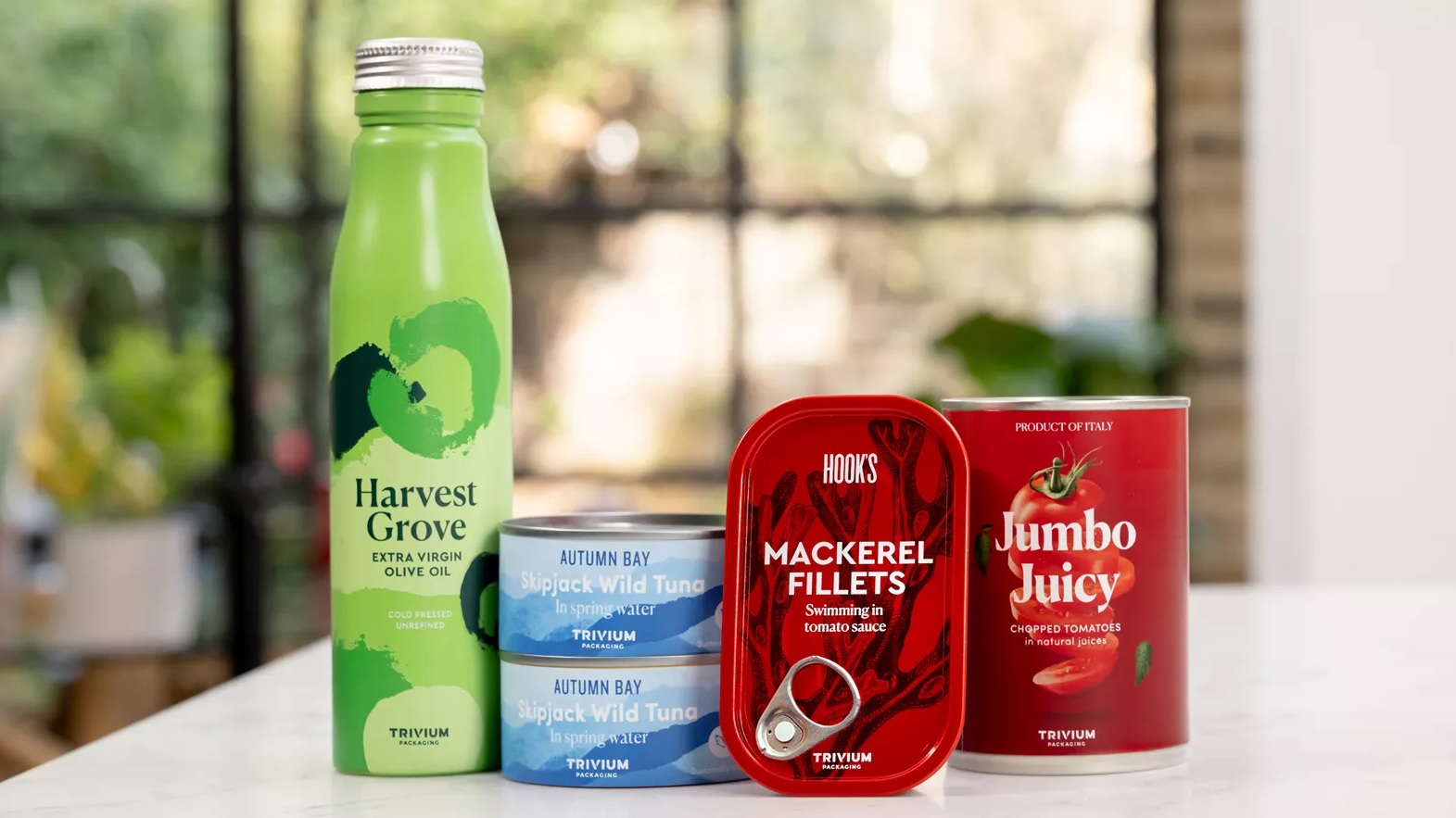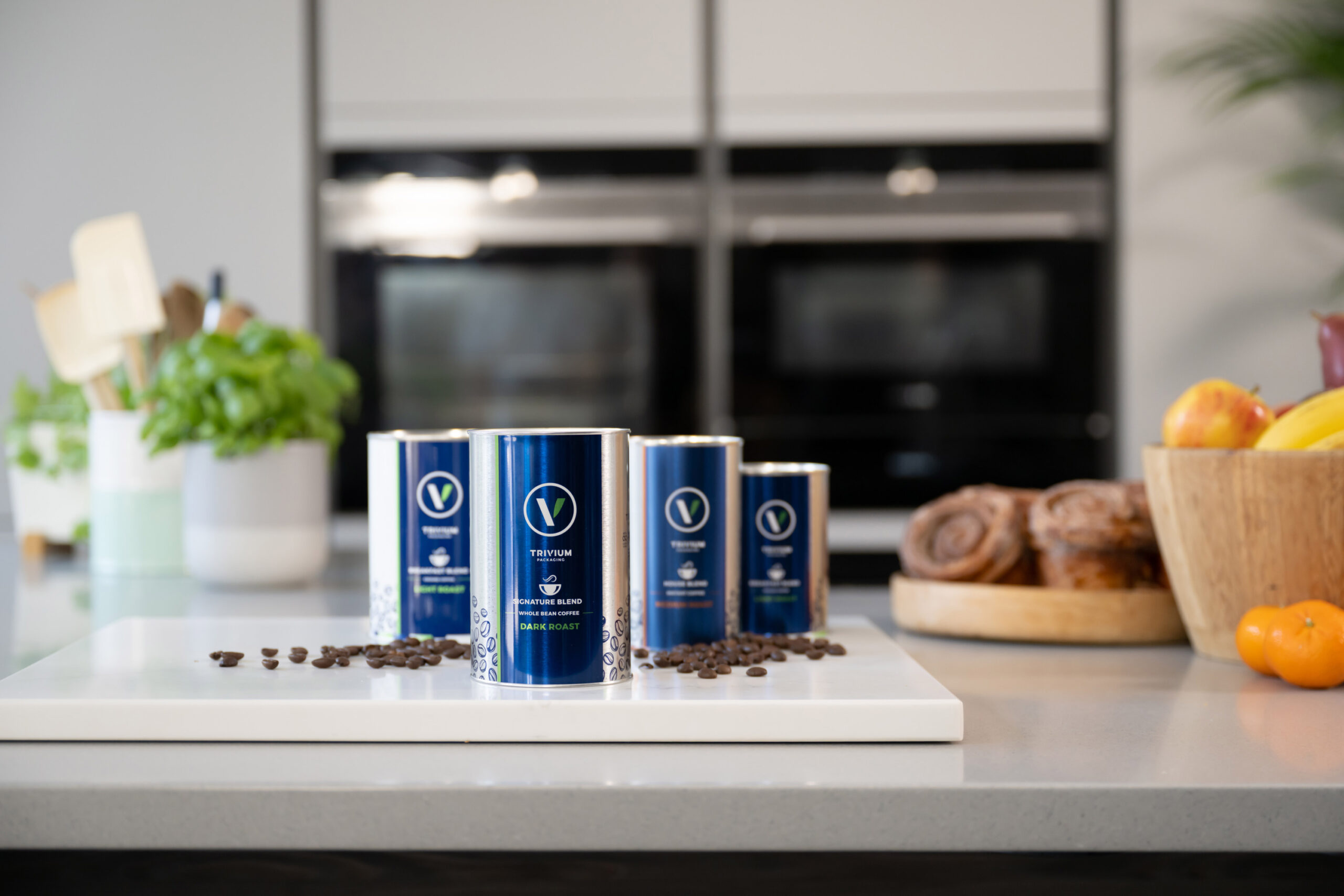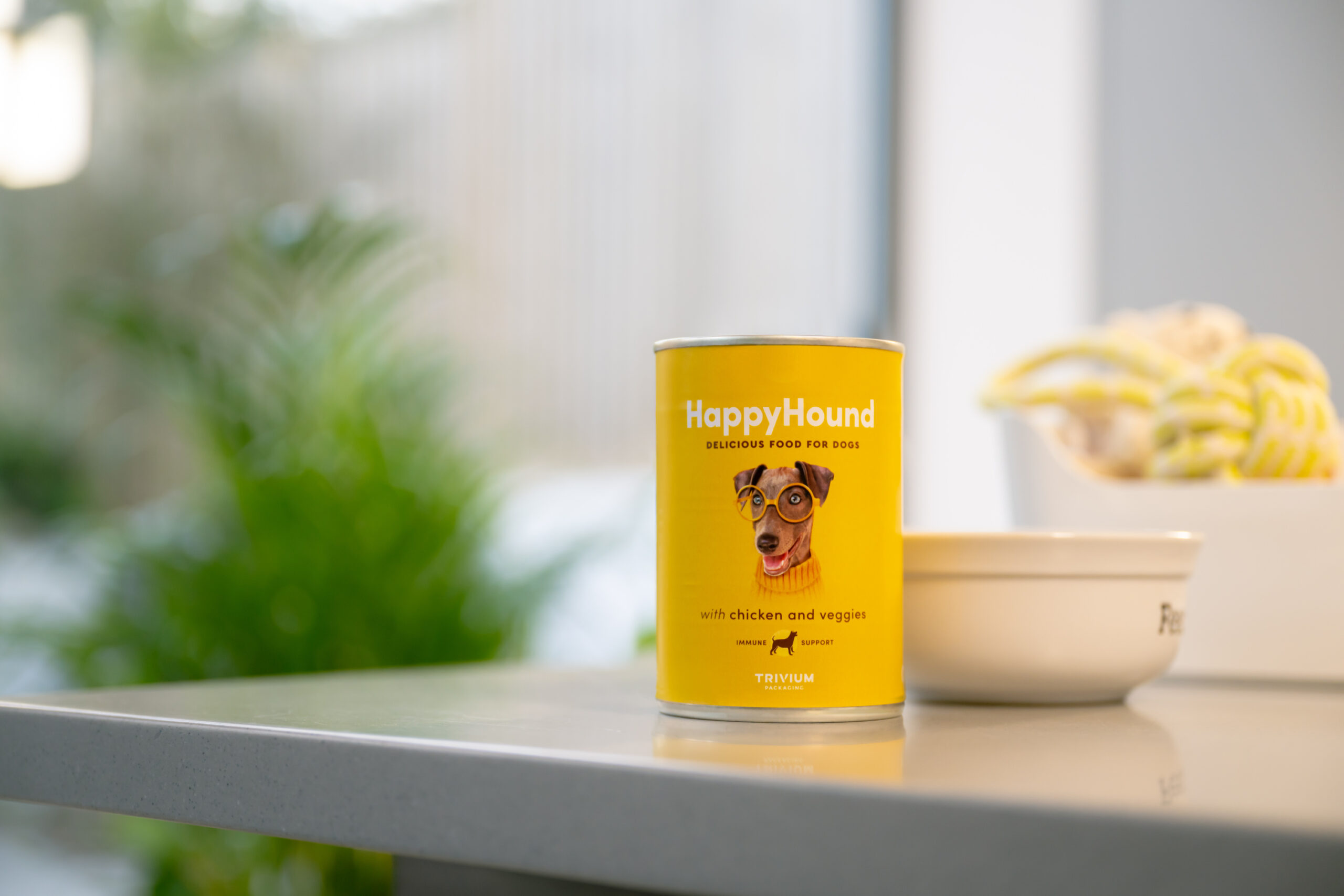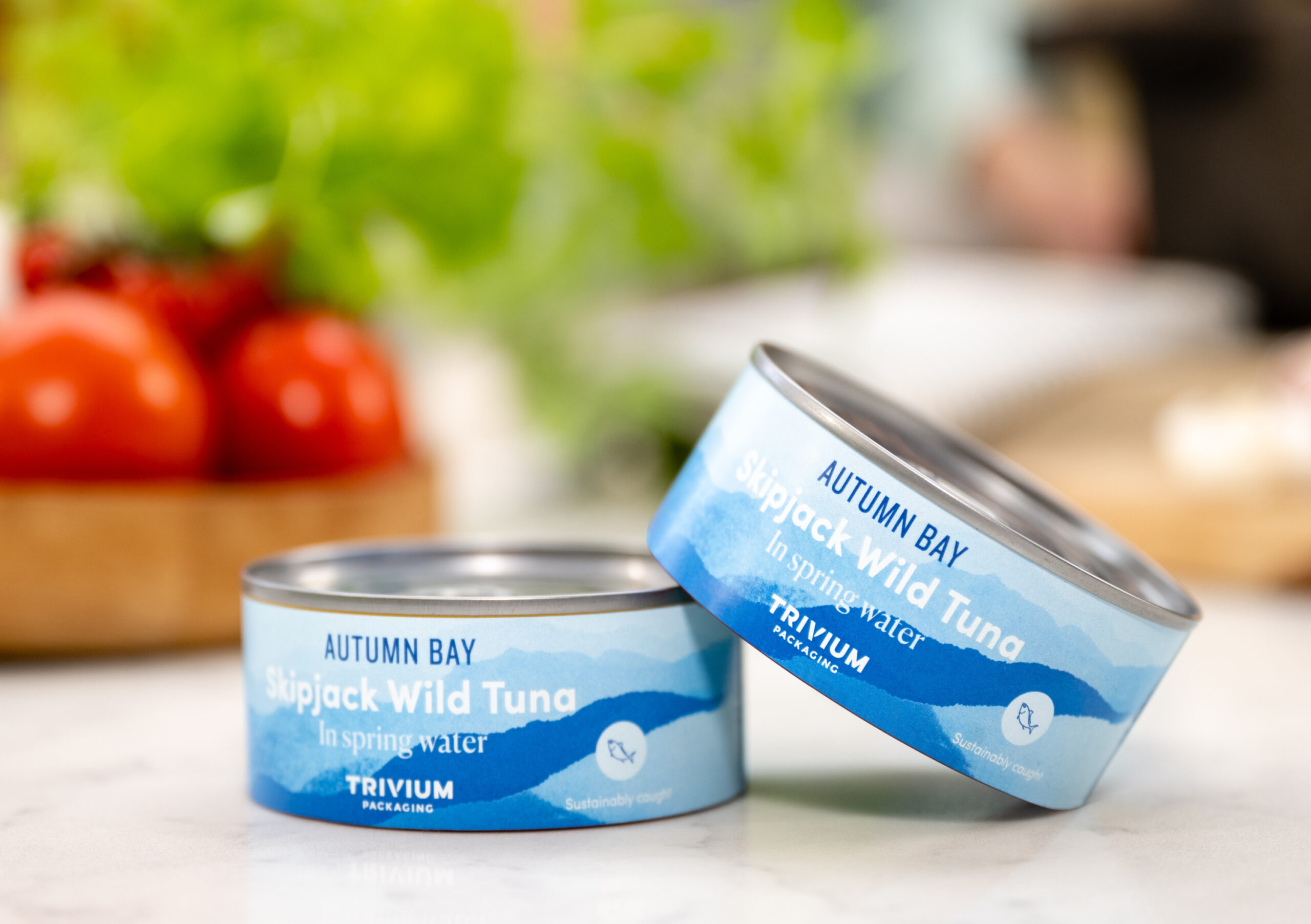
With sustainability now at the forefront of many business decisions, materials for packaging such as compostable paper and recycled plastic have seen a significant rise in use. These materials are often lauded for their eco-friendly attributes and potential to reduce environmental impact. However, many people overlook the tried and true benefits of metal packaging.
Metal packaging offers numerous advantages, including durability, recyclability, and a long history of effective use in preserving and protecting products. Unlike some newer materials, metal can be recycled indefinitely without loss of quality, making it a truly sustainable option.
To delve deeper into the topic, I interviewed Jenny Wassenaar, Chief Sustainability Officer at Trivium Packaging. Wassenaar provided valuable insights into the benefits of metal packaging and how it fits into the broader sustainability landscape.
Fujio: Why should companies choose metal packaging as opposed to plastic?
Wassenaar: When considering which packaging substrate to use, it is important to select a material that is going to protect and preserve its contents, reducing damage and waste. Metal offers superior levels of robustness and durability, preserving contents against light and air, while maintaining the nutritional value of its contents, even at ambient temperatures. Additionally, it boasts the benefits of infinite recyclability. In practice, this means that 80% of metal ever produced is still in use today.
In contrast, plastic can only be safely recycled up to 2-3 times. The problem? We’re facing a growing global waste problem, which is polluting our environment and ecosystems. 22 million tonnes of plastic ended up in soils, rivers, and oceans in 2019, according to a European Parliament Report.
When a brand chooses to use metal in its packaging, or a consumer decides to buy the product packaged in metal, both are promoting a circular economy, with a material that, instead of ending up in a landfill, can be recycled time and time again, maintaining its quality and properties.

Is metal packaging more expensive than plastic packaging? If so, what are some of the reasons?
Plastic has long been considered the cheapest alternative in packaging, but the cost comparison can vary based on several factors such as the type of product, the quantity, and the specific requirements for the packaging.
While metal packaging may potentially be more expensive upfront due to the cost of materials like steel and aluminum, it offers key benefits in terms of sustainability and recyclability. Metal is infinitely recyclable and has high recycling rates, which can contribute to its value in the market despite higher initial costs. Metal is also durable, reduces waste, and is lightweight when used for packaging, reducing transportation costs compared to other substrates.
On the other hand, plastic packaging can be less expensive in terms of raw material costs. While its lightweight can reduce transportation costs, the environmental impact of plastic, particularly single-use plastics, is a significant concern. The recycling rates for plastic are generally much lower than for metals, and there are additional environmental costs associated with the production and disposal of plastic packaging.
It’s also important to consider the full lifecycle costs of packaging, including the end-of-life disposal or recycling. While metal packaging may have a higher initial cost, its recyclability and potential for reuse can offset these costs over time. In contrast, the lower initial cost of plastic packaging may not account for the environmental and waste management costs associated with its disposal.
In summary, while metal packaging might be more expensive than plastic packaging initially, its sustainability and recyclability can provide long-term value and benefits that may justify the cost. Plastic packaging, while cheaper upfront, carries environmental costs that are increasingly being recognized and addressed by regulations and consumer preferences. The choice between metal and plastic packaging will depend on a variety of factors, including cost, sustainability goals, and the specific needs of the product being packaged. One must consider the hidden cost of the cheapest price when evaluating their packaging choices.
What are some of the challenges of metal packaging that people are unaware of?
Misconceptions about metal’s recyclability pose a challenge. To maintain the material loop we need consumers and businesses to recycle correctly. A large part of our work is, therefore, in education. We know from our Buying Green Report (consumer research that focuses on consumers’ perceptions, values, and behaviors regarding sustainable packaging) that there are misconceptions about what is truly able to be recycled. What’s more, for many consumers, recycling can be confusing. The risk with this, however, is that precious materials could end up in the wrong system and be wasted in turn.
Change can’t come from one organization alone, however. In the UK, for example, we are partnering with Alupro on its UK Aerosol Recycling Initiative alongside many others in the industry. There is generally a misconception amongst consumers that aerosols cannot be recycled. They can, but their unique format and pressurization might require special care in the recycling process. By working together, our mission is to shift consumer perceptions, while also moving the dial on the development of recycling capabilities.
Where does Trivium source its metal and how do you ensure it is sustainable and ethically sourced?
At Trivium, we source aluminium and steel, utilising both virgin and recycled metals to meet the demands of our customers and partners. Our approach to responsible sourcing starts with supplier selection. At Trivium, we have a due diligence process in place to help us identify and work with partners that share our values and our commitment to acting responsibly. In our tender processes, we assess potential suppliers based on a series of questions about their sustainability and social responsibility actions and plans. Trivium’s Supplier Code of Conduct includes a set of requirements for working with Trivium and clarifies our expectations for our supply chain partners around the world on a range of issues, including human rights, anti-bribery and fraud, modern slavery prevention, conflict minerals, health and safety and business integrity.
In 2023, we updated this Supplier Code of Conduct to further detail our requirements on environmental management, energy consumption, water use, biodiversity, discrimination and diversity, equity, inclusion & belonging and cybersecurity. Trivium requires Top-200 suppliers to adhere to the minimum environmental, social and governance (ESG) standards as summarized in the Trivium Supplier Code of Conduct. At the time of publication of this report, 78% of our Top-200 suppliers had either signed off on our 2022 Supplier Code of Conduct or provided us with a Code of Conduct of their own of similar stringency. Additionally, 37% of the top-200 suppliers have signed off on our updated 2023 Supplier Code of Conduct or provided their own code of conduct that meets our standards. In 2023, we also introduced our internal Sustainable Procurement Guidelines, which outline the ESG practices that our suppliers are expected to meet. These guidelines include a range of practices, such as integrating ESG assessments into vendor selection, promoting ESG practices across our supply chain, defining expectations through our Supplier Code of Conduct, and conducting regular supplier ESG assessments and reviews.
This Guideline serves as a complement to our Global Procurement Policy, and a useful handbook for our procurement team to further promote Trivium’s commitment in fostering a sustainable supply chain. In 2023, we confirmed that 100% of Trivium’s tinplate manufacturers, traders and component suppliers are covered by a Conflict Minerals Reporting Template or conflict-free material statement. In September 2023, Trivium Packaging became a member of the Responsible Minerals Initiative. By joining, Trivium aims to further enhance our responsible minerals sourcing program, conduct a due diligence review of our supply chain and develop best practices aligned with international standards.
Has Trivium experienced a rise in demand for its metal packaging in recent years in light of global warming and shifting industries committing to sustainability?
Metal packaging has always been in high demand, but as companies make significant strides in their sustainability plans and seek packaging solutions that reduce waste, that demand has increased. To grow our portfolio, we focus on the strength within the company. We are committed to offering customers best-in-class metal packaging solutions that help consumers enjoy their products in a safe, comfortable, convenient, and environmentally friendly way. This requires a continuous focus on innovation.
We recognize, however, that we are just one link in our value chain and believe that the different players in our ecosystem can and should take every opportunity to learn from one another. To support and enable this, our teams proactively collaborate with customers, suppliers and research institutes to develop one-of-a-kind packaging solutions with technical and sustainable excellence at their core. We work closely with our customers to develop new ideas that address key market opportunities. This close collaboration is an open and ongoing dialogue with our customers throughout the year and is often supplemented with innovation and sustainability sessions. During these sessions, we listen to our customers’ packaging challenges and wishes, share new ideas for new packaging options based on their existing product portfolio, and help them to identify key growth opportunities in their market segments. We can follow up on these collaborative sessions according to customer needs with customized, industry-leading innovations that advance their objectives.
Based on these discussions and collaboration, Trivium won several awards over the last year, among others: Pac Global, Best in Class in the Package Innovation and Technical Design category for Rexona. Cans of the Year, Gold in the Decoration and Print Quality category for Budweiser Selections. Cans of the Year, Gold in the category of Food, Two-Piece for Palacio de Oriente.
What sets Trivium apart from its competitors? Why should companies choose Trivium?
At Trivium, we shape the future of packaging to ensure a better planet for everyone – today and for generations to come. Sustainability is my true passion, and it lies at the heart of Trivium. We see our customers as partners, who we can support and guide on their journey to sustainability. We are so much more than a packaging supplier and we dedicate ourselves to our partners and our mission to achieve our sustainability targets. When working with us you’ll also have access to our industry-leading innovations, such as the world’s lightest seafood can.
At Trivium our sustainability journey is embedded in the design of the company. Our commitment extends beyond transparency; we’re dedicated to fostering sustainability throughout our value chain. Proud to achieve Ecovadis Platinum for the third consecutive year, we reaffirm our pledge to sustainability excellence and continue fostering it across the entire value chain. In 2023, Trivium was the first metal packaging company in the world to obtain the Carbon Disclosure Project (CDP) A-list notification for our climate change disclosures. These external recognitions are a testimonial of Trivium’s commitment to our sustainability journey.
All images in this article are courtesy of Trivium Packaging.









